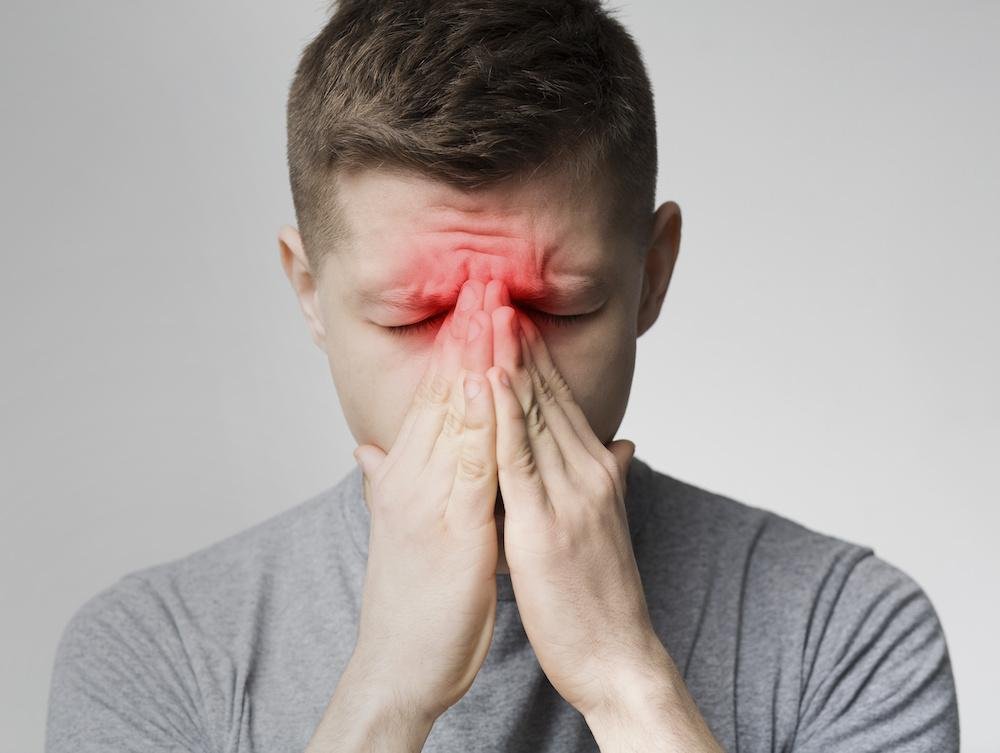Sinitus
Sinusitis is inflammation and swelling of the lining of the sinuses, which are small, air-filled cavities behind the cheekbones and forehead. Their function is to drain mucus through to your nose but in sinusitis they become blocked due to the swelling. This condition is usually caused by an infection. It is common in the UK and usually clears up on its own within 2 to 3 weeks, although it can become a chronic condition.
What are the symptoms of sinusitis?
Common symptoms of sinusitis include:
- Nasal congestion: One of the most prominent symptoms is a stuffy or blocked nose. The congestion can make it difficult to breathe through the nose.
- Facial pain or pressure: many people with a sinus infection experience pain, pressure or a feeling of fullness in the face, more so in the forehead, cheeks and around the eyes.
- Sinus headache
- Nasal discharge: the infection can lead to discharge from the nose; it may be yellow or green in colour.
- Reduced sense of smell and taste: due to nasal congestion and mucus build-up, some people with sinusitis may notice they are unable to smell or taste.
- Toothache
- Bad breath: the accumulation of infected mucus can cause bad breath.
- Fever: In some cases, a high temperature may occur.
The most common causes of sinusitis are:
- Viral infections: acute sinusitis can often be triggered by viral infections, such as the common cold or flu. Viruses cause inflammation and swelling of the nasal passages which can lead to congestion and discomfort.
- Bacterial infections: Bacterial sinusitis may follow an unresolved viral infection.
- Allergies: Allergies to airborne allergens like pollen, dust mites, pets and mould spores can lead to a sinus infection.
- Structural abnormalities: Physical blockages or structural issues with the nasal passage can impact proper drainage of the sinus. These include a deviated septum, nasal polyps and enlarged adenoids.
- Environmental irritants: Exposure to irritants such as tobacco smoke, air pollution or other chemical irritants can cause inflammation of the nasal passage.
- Dental infections: infections in the teeth can sometimes extend into the sinuses leading to sinusitis.
How can sinusitis be treated?
Sinusitis can vary from person to person, and therefore the best course of treatment will differ depending on the underlying cause and the severity of the infection. If you are suffering with sinusitis, you can come and speak to one of our pharmacists today.
Your pharmacist may recommend advice and simple remedies for mild sinusitis; these include:
- Getting plenty of rest
- Drinking plenty of fluids
- Taking over the counter pain killers (do not give aspirin to children under 16)
- Avoiding allergic triggers and/or taking antihistamines
- Not smoking
- Cleaning your nose with a saltwater solution
- Using a decongestant nasal spray, drops or taking decongestant tablets

